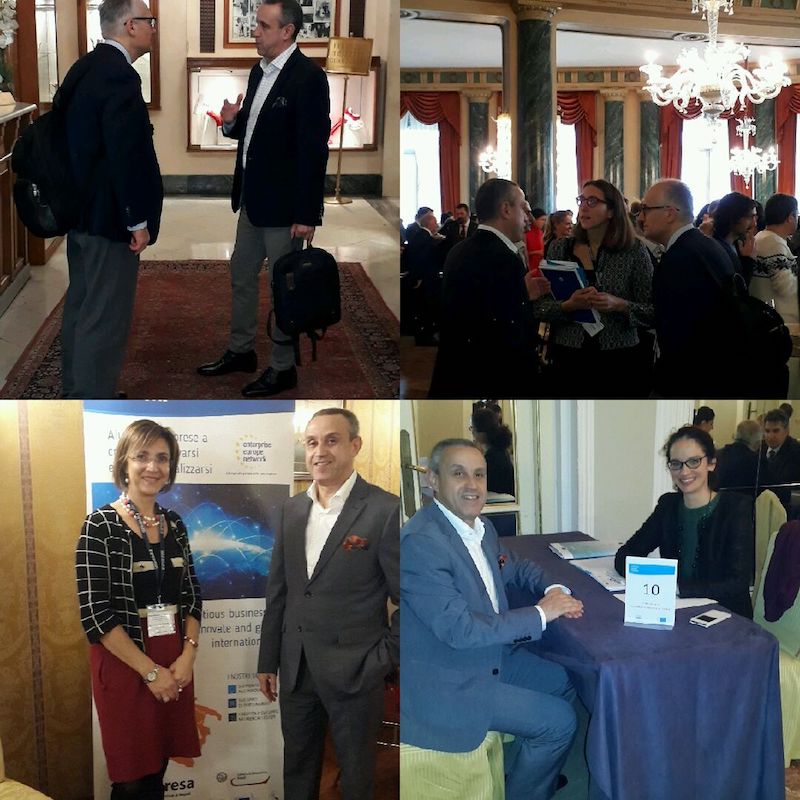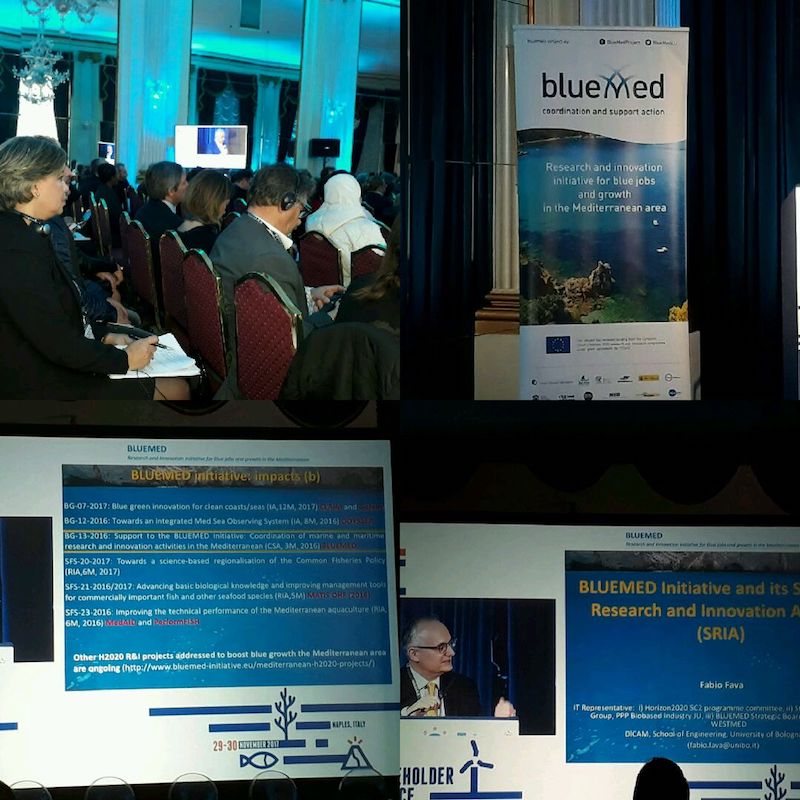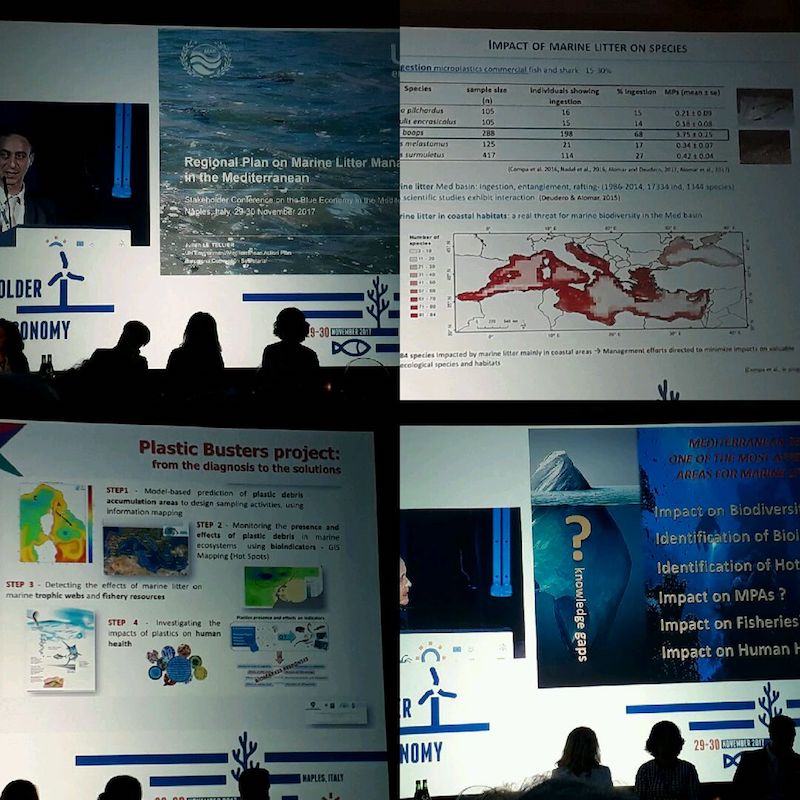The EU-funded ODYSSEA Project, represented by its Algerian partner, Nord Sud Ventures (NSV), participated at the first Union for the Mediterranean (FM) Stakeholder conference on blue economy held in Naples, Italy, on 29 and 30 November 2017.
The conference brought together more than 400 participants from the Euro-Mediterranean region including government officials, regional and local authorities, international organizations, and representatives from the private sector, academia and civil society organizations (NGOs & NGIs). The UfM conference is part of the new initiative for the sustainable development of the blue economy in the Western Mediterranean, launched by the European Commission in April 2017.
Participants highlighted the following issues:
Lack of cooperation between public and private institutes
- Inaccessibility and lack of data and information on the ecosystem
- Difficulty finding a consensus in the Mediterranean
- Need to value ports, which should not only be trade access based but create access to the cultural heritage it represents
The discussions highlighted the need to rethink the European strategy to safeguard the competitive elements considering the future role of China and Russia in the Mediterranean. By highlighting China’s increasing role in the Mediterranean and port competitiveness, participants wish to improve the Southern Mediterranean ports for better trade with the North Shore, which is currently in crisis.
Overall, participants expressed the need for greater coordination and governance, and emphasized the need for innovation, training, job creation, and enhance Public Private Partnership (PPP). The idea of developing a technological hub was also emphasized as well as bringing together all sectors in a single cluster.
The representatives of UfM countries welcomed both PRIMA initiative BLUEMED initiative on research and innovation for blue jobs and growth in the Mediterranean region. They invited all stakeholders to share more knowledge and know-how. To this end, the UfM Secretary General mentioned three levels of cooperation, which he defined as the 3Ps: political level, level of joint projects and level of platforms.
The conference launched a Virtual Knowledge Center on Blue Economy which is an online information and networking platform for blue economy actors in the Mediterranean region. NSV is a part of it on behalf of ODYSSEA.
The Algerian Minister of Agriculture and Fisheries, Mr. Abdelkader Bouazghi, emphasized that: “This conference is the framework of validation of a governance mechanism to allow the implementation of sustainable development initiative of blue economy in the western Mediterranean, through a Steering Committee, which will be chaired for the next two years by France and co-chaired by Algeria during the first year followed by Morocco for the second year”.
He added that the various technical meetings held nowadays, allowed the definition of all elements of the initiative. It is now, up to the political authorities to approve this framework enabling the feasibility. This initiative will involve five partner countries as a matter of priority, namely: Algeria, Tunisia, Libya, Mauritania and Morocco alongside with five EU member States: France, Italy, Portugal, Italy, Spain and Malta.
According to NSV decoding of the Minister statement, it is a 5+5 platform dedicated to the blue economy that Algeria is calling for, which would be part of the global cooperation framework of 5+5 already existing for other sectors.
In order to promote ODDYSSEA Project, Mr. Arslan Chikhaoui of NSV, in his various bilateral exchanges and his comments in B2B sessions highlighted the fact that: “The rapid development of sustainable blue economy requires access to information and data that can be used in real time. Today, data and information related to the sea are scarce and are usually provided by different platforms but in deferred time”.
“The ODYSSEA Project, as an innovative technological platform, is useful for both the Eastern Mediterranean and the Western Mediterranean to provide information services to different users, namely: shipping, agriculture, offshore oil industry, fisheries and aquaculture industries, tourism, and finally the scientific research and protection of marine coasts,” Mr. Chikhaoui concluded.




